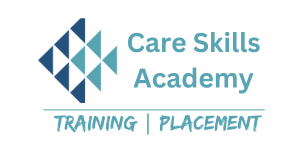The automotive industry is one of the largest and most dynamic fields globally, with a constant demand for skilled technicians who can diagnose, repair, and maintain a wide variety of vehicles. Enrolling in an Automobile Repairing Course offers comprehensive, hands-on training that prepares students for successful careers in automotive repair, whether they aspire to work in repair shops, service centers, or as independent technicians. Here’s a look at what this course entails and why it’s an ideal stepping stone for anyone interested in the automotive field.
Why Choose an Automobile Repairing Course?
Automobile repair has grown far beyond basic mechanical skills. Modern vehicles are equipped with advanced technology, including electronic control units, complex diagnostics, and computerized systems that require specialized knowledge. An Automobile Repairing Course equips students with a blend of traditional repair skills and knowledge of the latest automotive technology. This expertise makes graduates valuable to employers who rely on technicians who can handle both mechanical and electronic issues.
What You Will Learn in an Automobile Repairing Course
An Automobile Repairing Course covers a wide range of topics that build foundational and advanced skills for aspiring automotive technicians. Here’s what you can expect to learn:
- Engine Mechanics and Repair: Students begin by learning the fundamentals of engine mechanics, including engine components, fuel systems, and combustion processes. The course also covers common engine problems, troubleshooting techniques, and repairs, ensuring students are equipped to handle various engine types, from traditional gasoline engines to more modern diesel and hybrid engines.
- Electrical Systems and Diagnostics: Modern vehicles contain extensive electrical systems that control everything from ignition and lighting to infotainment. Students receive training in understanding wiring diagrams, using multimeters, diagnosing electrical faults, and repairing electrical components, which are essential skills in today’s automotive industry.
- Transmission and Drivetrain Systems: The transmission system is a vital component that transfers power from the engine to the wheels. The course covers manual and automatic transmissions, teaching students how to identify and repair common issues such as transmission slips, leaks, and clutch problems. Drivetrain systems, which include differential and axles, are also examined in detail.
- Brakes and Suspension: Safety systems like brakes and suspension are critical for vehicle control and passenger safety. Students learn how to inspect and repair braking systems, replace brake pads, diagnose suspension issues, and maintain steering components to ensure safe and reliable vehicle operation.
- Heating, Ventilation, and Air Conditioning (HVAC): Proper HVAC maintenance is essential for passenger comfort. The course covers the basics of HVAC systems, including refrigerants, compressors, and airflow, enabling students to diagnose and repair issues within these systems.
- Diagnostic Tools and Techniques: Learning to use diagnostic tools is essential for modern automobile repair. From OBD (On-Board Diagnostics) scanners to advanced software tools, students gain practical experience in diagnosing complex issues through data analysis. This segment of the course is especially valuable in preparing students to handle computerized systems and electronic control units (ECUs).
- Basic Automotive Maintenance: Routine maintenance, such as oil changes, tire rotations, and fluid checks, is a core part of an automobile technician’s job. Students practice these essential services, learning to work efficiently and accurately to meet industry standards.
- Customer Service Skills: Many courses also emphasize customer service skills, as technicians often interact with clients. Students learn how to communicate repair needs, offer advice on maintenance, and ensure customer satisfaction, which is invaluable for building trust and a positive reputation.
Career Opportunities After Completing the Course
Completing an Automobile Repairing Course opens up numerous career opportunities:
- Automotive Technician: Technicians work in garages, dealerships, or repair shops, diagnosing and repairing various vehicle issues. With the skills gained from this course, you’ll be able to handle a range of mechanical and electrical problems.
- Service Advisor: Service advisors act as intermediaries between customers and technicians, explaining repairs, recommending maintenance services, and providing cost estimates. This role is perfect for those who enjoy working with people and have technical knowledge.
- Specialized Technician: Many graduates choose to specialize in specific areas, such as engine repair, transmission, or electrical systems. This allows them to focus on high-demand skills and become experts in particular fields.
- Freelance Mechanic: For those who prefer flexibility, working as a freelance mechanic provides the freedom to choose clients and work schedules. Many freelance mechanics start their own businesses or operate mobile repair services.
- Automotive Inspector: Inspectors check vehicles for compliance with safety standards, often working for government agencies, insurance companies, or dealerships. The course prepares you with knowledge of regulatory requirements and safety standards.
Why an Automobile Repairing Course Is a Great Investment
The automobile industry is evolving quickly, and skilled repair technicians are essential to keep vehicles in optimal condition. An Automobile Repairing Course is a smart investment because it provides practical skills in a field that has continuous demand. It’s a rewarding career path, not only because of the potential earnings but also because of the satisfaction of solving problems and helping clients.
Moreover, with the shift toward electric and hybrid vehicles, automotive technicians with advanced knowledge of electronics and diagnostics are especially valued. Completing this course gives you a competitive edge and future-proofs your skills for a changing industry.
Conclusion
An Automobile Repairing Course offers in-depth training for anyone interested in entering the automotive industry. From learning engine mechanics to mastering diagnostics, the course equips you with all the tools necessary to succeed as an automotive technician. Whether you’re starting fresh or looking to expand your skillset, this course opens up pathways to a fulfilling and prosperous career in the automotive world.

